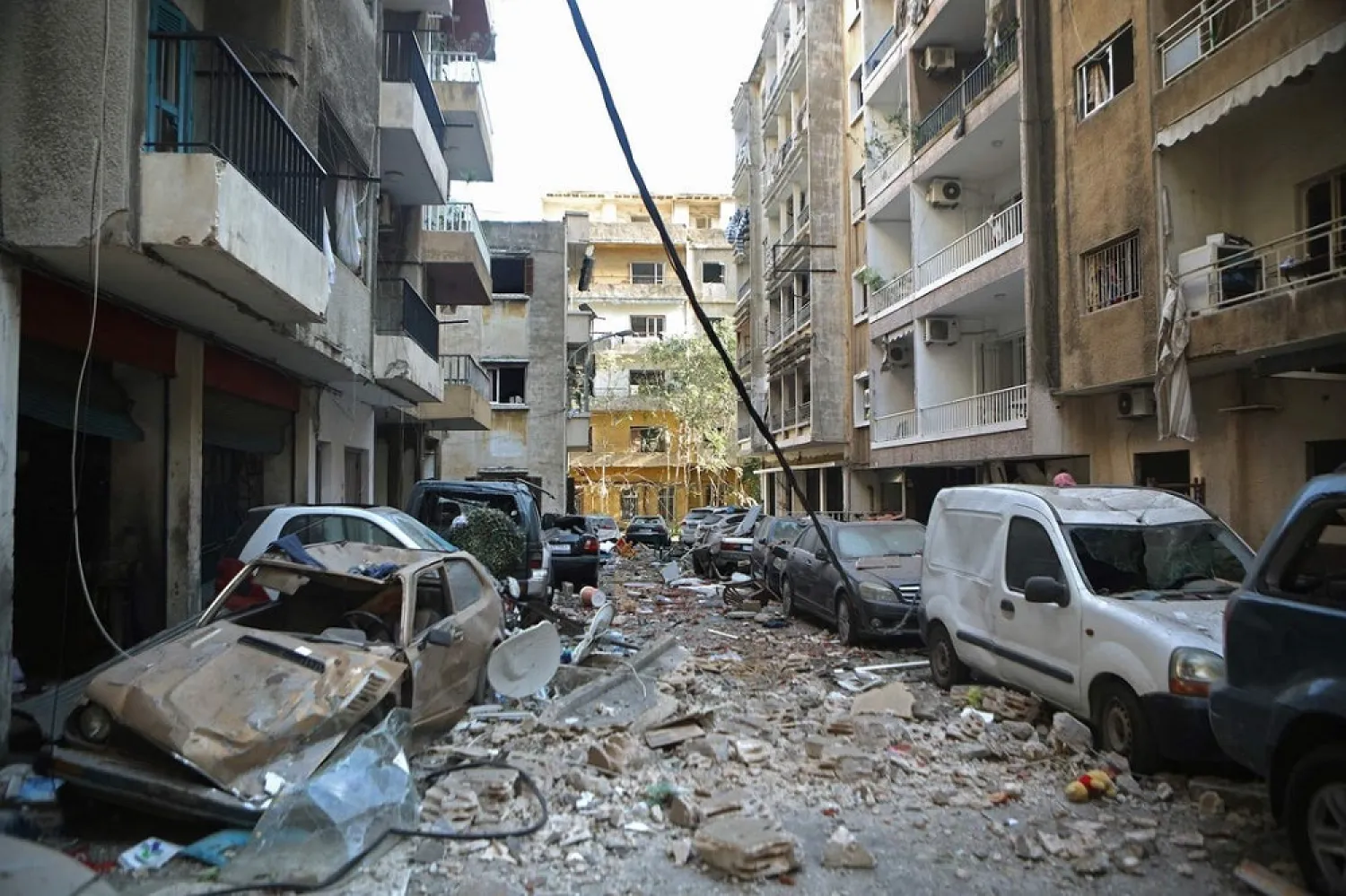As Beirut mourns its dead and grapples with the scale of rebuilding after this week's massive blast, some Lebanese activists planned to demonstrate in the city on Saturday, angered by the government's response to the disaster.
Tuesday's port explosion, the biggest in Beirut's history, killed 154 people, injured 5,000 and destroyed a swathe of the city.
Some residents, struggling to clean up shattered homes, complain the state they see as corrupt - there had been months of protests against the government's handling of a deep economic crisis before this week's disaster - has let them down again.
The demonstration was planned for Saturday afternoon.
"The people are doing your work, shame," someone wrote on the dust covering a car window, referring to Lebanese leaders.
The prime minister and presidency have said 2,750 tons of highly explosive ammonium nitrate, which is used in making fertilizers and bombs, had been stored for six years without safety measures at the port warehouse.
President Michel Aoun said on Friday an investigation would also examine whether it was caused by a bomb or other external interference. Aoun said the investigation would also weigh if the blast was due to negligence or an accident. Twenty people had been detained so far, he added.
'We can't afford to rebuild'
Some residents wondered how they would ever rebuild their lives.
Tearing up, Bilal Hassan used his bare hands to try to remove debris from his home located a few hundred meters from where the port blast hit. He has been sleeping on a dusty couch besides pieces of splintered glass.
When his three wounded teenage children ran for their lives they left blood stains on the staircase and walls.
"There is really nothing we can do. We can't afford to rebuild and no one is helping us," he said, standing beside a large teddy bear that was blown across his home, and a damaged photograph of him and his wife.
Bulldozers ploughed through the wreckage of mangled homes and long rows of flattened cars as soldiers stood by. Volunteers with shovels streamed through streets.
Danielle Chemaly said her charity organization, whose headquarters was destroyed, had provided assistance to 70 families who were left homeless by the explosion.
"We have given people initial help but we don't know what we can do for families in the future. It requires major projects," she said.
Officials have said the blast could have caused losses amounting to $15 billion. That is a bill that Lebanon cannot pay after already defaulting on a mountain of debt - exceeding 150% of economic output - and with talks stalled on a lifeline from the International Monetary Fund.
43 Syrians among victims
Syria’s state TV said 43 Syrian citizens were killed in the blast.
The TV quoted the Syrian embassy in Lebanon as saying that the number is not final as search operations for dozens of missing are still ongoing.
Lebanon is home to more than a million Syrians many of them refugees who fled civil war in their country.
The wife of the Dutch ambassador to Lebanon died on Saturday after being seriously injured in the massive explosion, the Dutch Foreign Ministry said.
Hedwig Waltmans-Molier, 55, was injured by the explosion as she stood next to her husband, ambassador Jan Waltmans, in the living room of their house in Beirut, the ministry said.
Tuesday’s blast caused extensive damage to the Dutch embassy, injuring four other people connected to it.
Aid from abroad
France and other countries have rushed emergency aid to Lebanon, including doctors, and tons of health equipment and food. The blast destroyed Lebanon's only major grain silo and UN agencies are helping provide emergency food and medical aid.
US President Donald Trump said on Friday he would join a conference call with Lebanon's president and other world leaders on Sunday to discuss aid to the country.
For ordinary Lebanese, the scale of destruction is overwhelming.
"It felt like a mini atomic bomb," said George Rohana, sitting beside a supermarket that was demolished.
A few onions were left in the debris of the blast that tore a huge hole through the shop into an adjacent apartment.
"Now we have a situation where people are stealing metals and other items from the destruction," said Rohana. "The other day someone walked away with a broken toaster."









